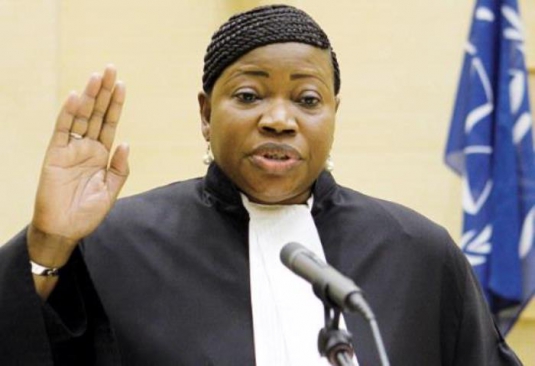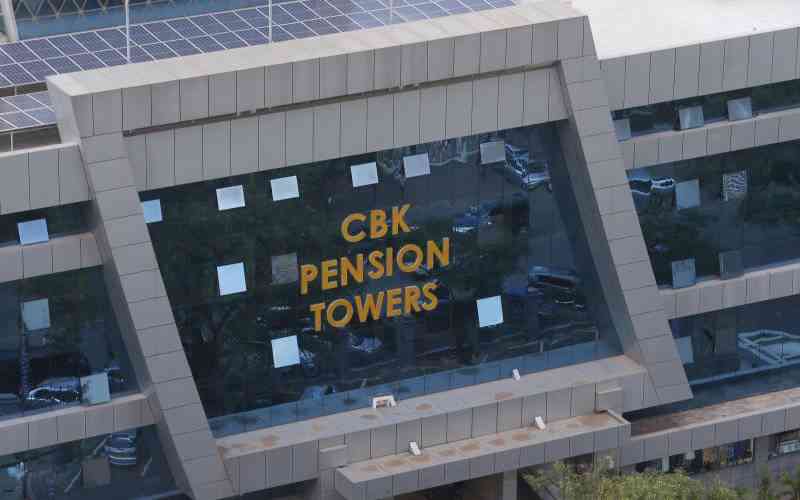Bensouda under pressure to go for key suspects linked to ICC witness tampering
Counties
By
Nzau Musau
| Aug 09, 2015

Prosecutor of the ICC Fatou Bensouda is under pressure to open up fresh cases against an undisclosed number of Kenyans over witness intimidation, bribery and tampering.
The charges are presupposed in a filing made on Tuesday by Fergal Gaynor, the victims lawyer in the collapsed case against President Uhuru Kenyatta.
Gaynor complains that Bensouda’s office has not provided follow-up to the information it provided on January 31 2014 regarding its intention to prosecute the “Article 70 cases.”
Article 70 cases in ICC parlance are offences against administration of justice. They include giving of false testimony, corruptly influencing witnesses, intimidating court officials and bribery.
Bensouda’s office has remained tight-lipped about the matter and strenuously refused to answer to inquiries about it.
READ MORE
Low development budget hurts Kenya's status as a regional hub
No more delays as CBK extends payment hours for 24-hour economy
Construction sector crumbles under political heat as investors retreat
Kenya, South Korea in fresh efforts to upgrade maritime training
AfDB to inject Sh8b for construction of Bungoma refferal hospital
Global energy leaders gather in Cape Town for Africa Forum
KenGen to add 63MW to grid by 2026
Crypto expert urge rethink of digital asset tax amid Sh10 billion revenue haul
KRA targets VAT as top revenue source through digital overhaul
Kenya gains low-risk EU status as deforestation law takes effect
“Individuals attempted to persuade witnesses 4, 11 and 12 to recant their testimony and/or to withdraw their cooperation with the Prosecution. On some occasions, money was offered to them.”
“While the Prosecution ultimately withdrew Witnesses 4 and 12 from its witness list for reasons unrelated to the bribery attempts, those attempts required the prosecution to expend considerable resources to investigate the bribery and to ensure the safety of its witnesses.”
“The Prosecution is considering prosecuting the individuals concerned for offences against the administration of justice,” Gaynor quoted the prosecution as promising.
Pre-trial brief
In the filing, Gaynor quotes a January 2015 pretrial brief which singled out Kabete MP Ferdinand Waititu as among the intermediaries who attempted to locate witnesses 11 and 12 in August 2012 for a deal.
“In a series of controlled telephone conversations recorded by the Prosecution with the witness’s consent, Mr Waititu told Witness 12 that he wanted to meet with him to discuss assisting Mr Kenyatta to “solve this fight” and the “lump of money to be given”.
“Mr Waititu indicated that he had spoken about the scheme to Mr Kenyatta and was keeping him informed of its progress. He explained that Mr Kenyatta wanted to avoid “direct” involvement because he was worried about getting caught tampering with evidence,” Gaynor’s application reads.
Waititu has since denied the claims.
In his Tuesday filing, Gaynor says it would be surprising if the prosecutor does not bring cases against such intermediaries given the gravity of alleged witness-tampering in the Kenyan cases and their alleged role in stalling the case.
“The ASP amended Rule 68 in part to deal with what the Prosecution has described as ‘unprecedented levels of tampering and anti-witness activity’ in the Kenya cases. The Prosecution frequently referred to the climate of fear in Kenya and to fears held by witnesses in Kenya II, which was a significant reason for witness withdrawal.”
Nick Kaufman, a practicing ICC lawyer and former prosecutor, says Article 70’s proceedings arising from the Kenyan cases cannot be ruled out and are “an imminent and concrete possibility.”
He says given that the two Kenyan cases have been beset by numerous problems relating to reluctant witnesses and allegations of interference, his instincts as a prosecutor point to inevitability of Article 70 proceedings at some point.
“Let us not forget the Bemba case, where the prosecutor, with her back to the wall (or not as the case may be) did not balk at the idea of playing her article 70 trump card.
“Ironically, the sting in the tail accompanying the amendments to the rules of procedure and evidence which permitted the president (Kenyatta) and his deputy (William Ruto) to absent themselves from the day to day proceedings in their respective trials was an amendment to rule 68 which can permit the introduction of prior recorded testimony from recalcitrant witness and adjudicated facts from a contempt trial.”
“Bearing all this in mind, the only question in my mind is when the prosecutor will come clean and announce how she has acted on her threats- implied or otherwise,” he said.
Article 70 proceedings attract an arrest warrant and a maximum penalty of 5 years imprisonment for a single count of contempt. The Standard on Saturday has since April been inquiring from the OTP whether new cases were in the offing following rumours in corridors of justice. In all the instances, court Spokesman Fadi Abdalla insisted only the prosecution was in a position to respond.
The prosecution has kept mum on the inquiries until this Friday when it in an email response, the OTP expressed commitment to “preserve the integrity of the court’s proceedings by investigating and bringing to account those who commit offences against the administration of justice.”
“As a party to the proceedings and as a Prosecution office, as you can appreciate, there are limits to what we can helpfully state to the public about the Office’s activities, in particular as they relate to investigations,” the OTP said in the guarded statement.
Dithering Bensouda?
Kaufman says it was always clear to him that the Barasa case was never going to be a one-off. He said probably the reason he has been dithering on Article 70 proceedings is because the main cases were still ongoing.
“When the prosecutor makes accusations of witness corruption, they carry the inherent risk of causing prejudice to the accused in the principal case and the specter of a mistrial,” he said.
He says he believes Bensouda considers herself obliged to open Article 70 prosecutions partly because of interests of justice and partly in order to provide a response to the civil society which has cried foul and will be judging her by her deeds.
Besides, he says, the prosecutor has during the pretrial brief singled out the individuals she deemed culpable and it would be incongruous for her to make such strident accusations without acting on them “least because it will leave her exposed to an abuse of process charge,” which Gaynor is now accusing her of.

